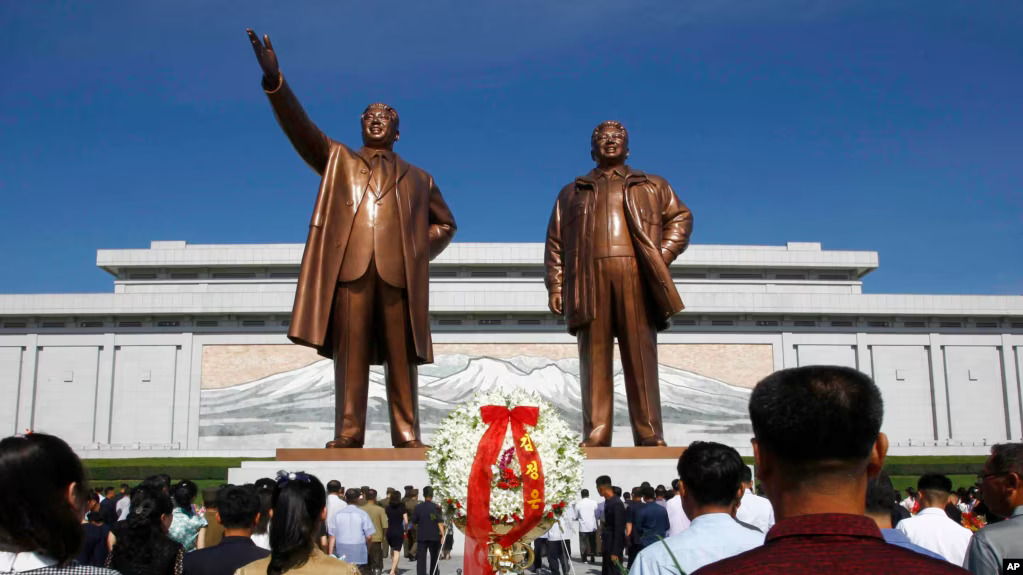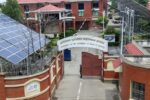WASHINGTON: The U.S. and like-minded countries must find new ways to monitor the enforcement of sanctions on North Korea after the mandate of a U.N. expert group expires this month, say former U.S. officials with deep experience in North Korea sanctions.
The U.N. Panel of Experts has been tasked with investigating whether member states are enforcing sanctions on North Korea for the past 15 years.
But at a Security Council meeting on March 28, Russia vetoed a resolution calling for the panel’s annual extension, and the panel will be disbanded after April 30.
This is the first time the Security Council has failed to extend the panel’s mandate for another year.
But Russia has grown closer to North Korea since Pyongyang began supplying weapons for Moscow’s war in Ukraine in violation of the sanctions.
The panel, consisting of eight experts and created in 2009, produced an in-depth report published twice a year describing cases that pointed to violations of the sanctions by U.N. member states and their entities and nationals. Those sanctions will remain in effect.
Once the panel is no longer active, the U.S. and other countries that supported its work — such as the U.K., France, Japan and South Korea — will have to rely on other ways to monitor and enforce the sanctions.
Potential alternatives include the use of new or existing coalition groups, which can be “far more powerful than relying on the U.N. Panel of Experts,” said Joshua Stanton, an attorney based in Washington who helped draft the Sanctions and Policy Enforcement Act in 2016.
Stanton said via email to VOA on Friday that Washington should see Moscow’s veto “as an opportunity to break free of Russian and Chinese obstructionism, to build a better coalition, and to give sanctions investigation and enforcement the vigor the U.N. system always denied.”
The Proliferation Security Initiative (PSI), led by the U.S. and consisting of more than 100 countries, aims to curb the spread of weapons of mass destruction, including through interdiction.
It was created by former U.S. President George W. Bush in 2003 in response to a failed attempt by the U.S. and Spain to confiscate the cargo of a North Korean ship carrying ballistic missiles to Yemen in 2002.
PSI member states can rely on their national laws to authorize an interdiction, said Stanton.
Another international coalition is the Egmont Group, which aims to counter money-laundering and terrorism financing.
Created in 1995, it is comprises financial intelligence units from 174 member states that share information and collaborate to counter illicit financial activities.
The U.S. Treasury Department’s Financial Crimes Enforcement Network is a founding member.
The U.S. is establishing another coalition with South Korea. On March 26, Washington announced it held the inaugural meeting of the Enhanced Disruption Task Force with Seoul aimed at blocking North Korea from procuring refined petroleum in violation of U.N. sanctions.
Anthony Ruggiero worked in the U.S. government for more than 19 years, focusing on targeted financial sanctions and proliferation issues, including those involving North Korea.
He told VOA in a telephone interview on Monday that these multilateral groups, like PSI, are “always a benefit” to monitoring and enforcing sanctions.
“We need those groups to say which authorities can take actions, whether through sanctions or enforcement actions or other mechanisms to stop these activities,” added Ruggiero, who is now a senior director of the nonproliferation and biodefense program at the Foundation for Defense of Democracies.
He also said that “U.S. sanctions are more robust than U.N. sanctions” and the question is whether Washington is willing to enforce them fully, for example, by targeting Chinese and Russian companies, individuals and banks that hire North Korean workers in violation of sanctions.
China has been accused of employing North Korean laborers to process seafood products and false eyelashes.
Expanding cooperation between Moscow and Pyongyang has spurred concerns that North Korean workers will flock to Russia for wages they remit to the state.
Aaron Arnold, a former member of the U.N. Panel of Experts who is currently a senior associate fellow at the Royal United Services Institute based in London, said there will be opposition to sanctions monitoring outside the U.N.
Arnold told VOA via email on Friday, “While Western governments will, of course, step in to provide intelligence and information about North Korea’s sanctions evasion activities, the stark reality is that these efforts will be viewed with a great deal of suspicion by non-Western countries.”
(VOA)








Comment